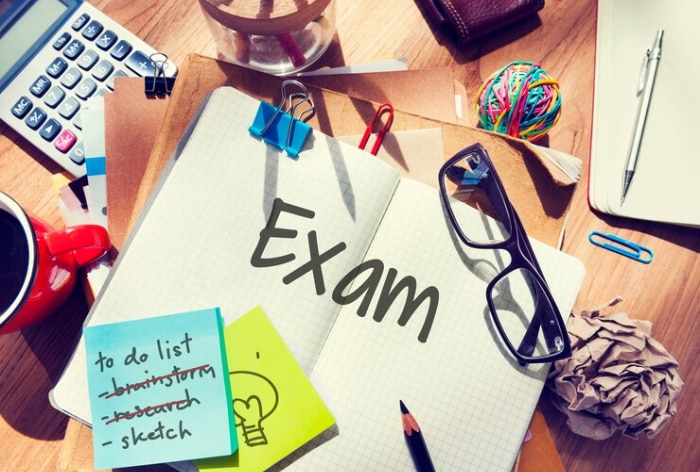CBSE Datesheet for the Class 10th and Class 12th have been released. To remind our readers, the National Testing Agency(NTA) has released the exam calendar. JEE Main Session 1 examination will be held between January 24 and February 1, 2024.
Study Tips: As the academic calendar progresses towards next year, a wave of preparation sweeps across the student and aspirants, particularly among those gearing up for crucial exams like CBSE, Joint Entrance Examination (JEE), and the National Eligibility cum Entrance Test (NEET). CBSE Datesheet for the Class 10th and Class 12th have been released. To remind our readers, the National Testing Agency(NTA) has released the exam calendar. JEE Main Session 1 examination will be held between January 24 and February 1, 2024. Meanwhile, the NEET UG 2024 examination will be held on May 5, 2024. NTA will conduct the Common University Entrance Test -UG from May 15 to May 31, 2024. These examinations stand as gateways to coveted educational institutions and, therefore, demand a meticulous and well-thought-out approach.
For students walking the tightrope of simultaneously preparing for both board exams and competitive exams, the upcoming months pose a dual challenge. It’s a journey that necessitates a strategic roadmap, one that harmoniously aligns with the syllabus of board exams and the nuanced requirements of competitive exams. According to Anil Ahlawat, CEO of MTG Learning Media, Juggling CBSE board exams and competitive exams such as NEET and JEE can be a daunting task as both are equally important for students’ future. That’s why effective time management and balancing the preparation are even more important.
“To strike an adequate balance between the two exams you need to give extra focus on the higher weightage concepts and topics of both the CBSE board and competitive exam. Next, prioritize CBSE higher weightage questions only as it is very important that you don’t lag behind in board exams. Narrow your focus in practicing subjective type questions more than MCQs as MCQs in CBSE are relatively easier and deep understanding of subjective questions will solidify your concepts.” Ahlawat further added. Here are some of the important tips and strategies to tackle both the competitive and board examinations.
How to Balance Board Exam Preparation With Competitive Exams? Check Tips, Tricks And Strategies by Expert
- Align syllabus overlap: Identify the commonalities between your board exam syllabus and the content required for competitive exams. Prioritize topics that overlap, allowing you to optimize your study time and deepen your understanding across subjects.
- Integrated study plans: Craft an integrated study plan that covers both board exam subjects and competitive exam topics. Allocate specific time slots for each subject, ensuring a balanced approach. Integrate short-term and long-term goals into your study routine to stay on track.
- Strategic time management: Efficient time management is crucial. Develop a daily schedule that accommodates the diverse needs of board exams and competitive exam preparation. Be realistic about the time required for each subject and maintain flexibility to adapt as needed.
- Strategic revision techniques: Regular revision is key for retention. Incorporate periodic revision sessions into your study plan, revisiting both board exam concepts and competitive exam topics. Employ mnemonic devices, mind maps, or flashcards to reinforce key concepts.
- Practice with mock tests: Regularly engage in mock tests for both board exams and competitive exams. Utilize past question papers for board exams to familiarize yourself with the exam pattern and practice time management. For competitive exams, simulate real test conditions to hone your problem-solving skills.
- Multidimensional learning resources: Diversify your learning resources by incorporating textbooks, online materials, and reference guides. Seek out specific resources tailored to your board exams and competitive exams to ensure a comprehensive understanding of each subject.
- Connect with mentors and peers: Foster connections with teachers, mentors, and peers who have experience in guiding students through both board exams and competitive exams. Their insights, study materials, and tips can prove invaluable in navigating the challenges of dual exam preparation.
In these crucial last few weeks of board exams practice is the key. Practice like your life depends on it. Practice will help you develop a strong conceptual understanding and problem-solving skills. Practice with CBSE sample papers as they will help you familiarize with the CBSE exam pattern. So, focus on balancing and don’t try to cover everything, prioritizing and balancing is the key. This method ensures comprehensive readiness for both, making your study journey more manageable and boosting overall confidence.
Speaking on this, Neelima Kamrah, Principal of KIIT World School, Gurugram, said, “In the journey of preparing for both board exams and competitive exams, students face the dual challenge of mastering diverse syllabus and adapting to distinct examination patterns. Crafting a well-thought-out revision plan is crucial, ensuring that each subject receives the attention it deserves. The correlation of topics between board exams and entrance tests becomes a valuable strategy, fostering a comprehensive understanding that aids in effective problem-solving across both domains.
“Regular practice of mock test papers for every subject is required. This not only familiarizes students with the exam formats but also helps them fine-tune their time management skills. The emphasis on conceptual and theoretical aspects equips them to navigate through the complexities of both sets of exams. Beyond academics, maintaining a healthy balance between physical and psychological well-being is essential, ” she further adds.







